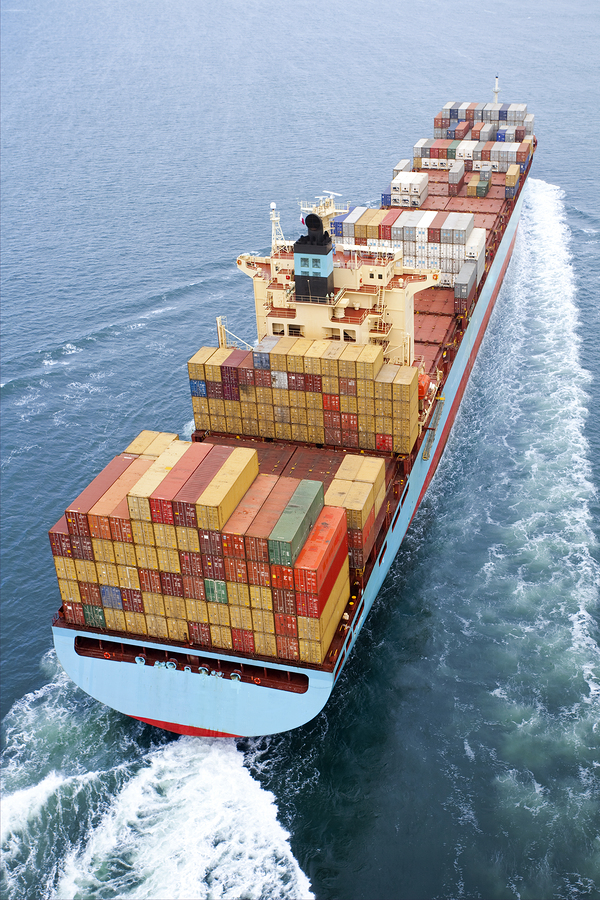Five ways importers can save
 Leading Australian Customs clearance agency Platinum® Freight Management warns of a growing trend for global manufacturers and their shipping partners to over-charge importers on Australian port charges for sea freight shipments.
Leading Australian Customs clearance agency Platinum® Freight Management warns of a growing trend for global manufacturers and their shipping partners to over-charge importers on Australian port charges for sea freight shipments.
Just this month, successful online Fancy Dress costume retailer, Costume Parlour was found to have been overcharged by $2,200 on one import alone. At this rate, the business could be down as much as $20,000 annually in unnecessary charges.
Port charges are often not disclosed to the importer during the sale process, as they are a third party cost associated with shipping. Additionally, disclosing these charges early on would contribute to an inflated overall cost which might deter an importer from proceeding with an order.
The port charges are based on kilograms and cubic metres, and can vary from one freight forwarder to another. As they are priced by a supplier’s private logistics partnering company, which has no relationship with the importer who pays the bill, there is little reason for them to keep costs down.
Platinum® Freight CEO Peter McRae says:
“We’re seeing suppliers partner with companies who charge a premium and who may even add on extraneous fees that are not required for that particular import.
“It preys on importers who don’t know to ask about shipping charges and who therefore can’t negotiate more equitable fees. Too few importers understand there is room to negotiate these charges and even change their supplier’s preferred shipping partners to get a fairer price.”
While Customs brokers are noticing increasing incidences of overcharging, the reasons why it is occurring now are unknown.
“Weak economic conditions may be forcing international suppliers to recoup costs by charging premium rates where they can,” says Peter McRae.
“The result is that the Australian importer is paying a premium for a service without knowing there are alternatives that may be just as effective and far less expensive.”
Costume Parlour operates entirely online with no shop front. The business competes with costume hire shop fronts and other online outlets, plus it competes with low-cost costume sellers both globally and locally.
A successful business, the company currently opts for small air freight imports regularly throughout the year as well as approximately eight large sea freight shipments annually, each with goods imported to the value of around $20,000 or more.
Platinum® Freight Management partnered with the business to customs-clear its latest import, and discovered a mass over-charge of $2,200 in Australian port costs.
“Port charges are a red flag area for brokers at present. To avoid clients becoming committed to unfair Port charges, we recommend a broker checks the quoted charges against a benchmark before the order is finalised, assessing any unreasonable or extraneous fees, then flagging these for investigation and negotiation with the supplier.”
At this point an importer or advising broker can negotiate to reduce the charges or opt for a change of logistics company. The global supplier is likely to agree if this negotiation takes place prior to paying the balance of the order.
Costume Parlour proprietor Kane Ballard said: “I had no idea Australian Port charges were negotiable. Nor did I understand the relationship between supplier and logistics partners enough to have confidence looking at changing logistics methods that they suggested.
“Being able to save $2,200 in one shipment has highlighted the opportunities there are to minimise costs throughout the importing process. We expect to save in excess of $20,000 per year in future, simply by understanding the system better and taking a harder line on negotiation with suppliers prior to shipping.”
 Platinum® Freight Management recommends that importers look at all areas of logistics for every import, flagging costs that seem high, or that are incomparably higher than previous jobs. This is a recommendation for all international suppliers as well as local transport and freighting partners. Areas where importers can often save significantly include:
Platinum® Freight Management recommends that importers look at all areas of logistics for every import, flagging costs that seem high, or that are incomparably higher than previous jobs. This is a recommendation for all international suppliers as well as local transport and freighting partners. Areas where importers can often save significantly include:
- Shipping charges to Australia
- The Australian port charges
- Relevant quarantine charges
- Storage costs per day [weekends inclusive] – if there are any delays with Customs or Quarantine
- Delivery charges from the wharf to warehouse
For more information about how to save money when importing, go to www.platinumfreight.com.au/12-ways-to-save
